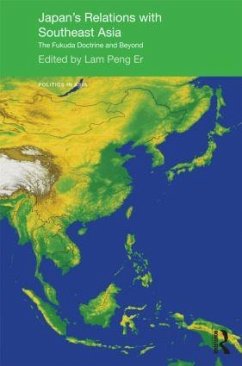
The Dynamics of Japan's Relations with Africa
South Africa, Tanzania and Nigeria
Versandkostenfrei!
Versandfertig in 1-2 Wochen
231,99 €
inkl. MwSt.
Weitere Ausgaben:

PAYBACK Punkte
116 °P sammeln!
This is the first book to examine in-depth Japan's relations with Africa. Japan's dependence on raw materials from South Africa made it impossible for Tokyo in the 1970s and 1980s to support other African states in their fight against the minority government and its policy of apartheid. Kweku Ampiah's detailed analysis of Japan's political, economic and diplomatic relations with sub-Saharan Africa from 1974 to the early 1990s makes it clear that Japan was lukewarm in the struggle against apartheid. Case studies of Tanzania and Nigeria dissect Japan's trade, aid and investment policies in sub-S...
This is the first book to examine in-depth Japan's relations with Africa. Japan's dependence on raw materials from South Africa made it impossible for Tokyo in the 1970s and 1980s to support other African states in their fight against the minority government and its policy of apartheid. Kweku Ampiah's detailed analysis of Japan's political, economic and diplomatic relations with sub-Saharan Africa from 1974 to the early 1990s makes it clear that Japan was lukewarm in the struggle against apartheid. Case studies of Tanzania and Nigeria dissect Japan's trade, aid and investment policies in sub-Saharan Africa more widely.














